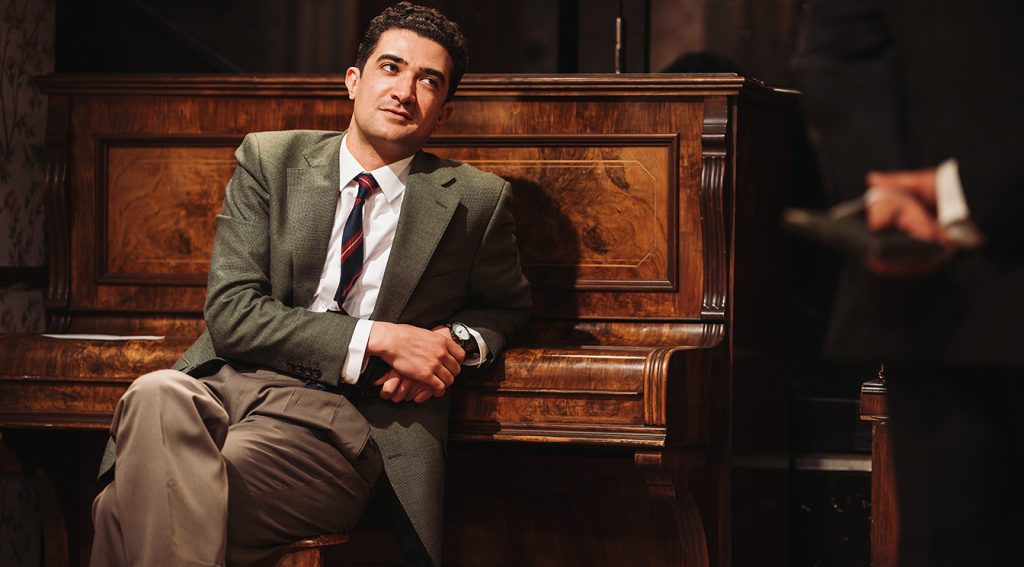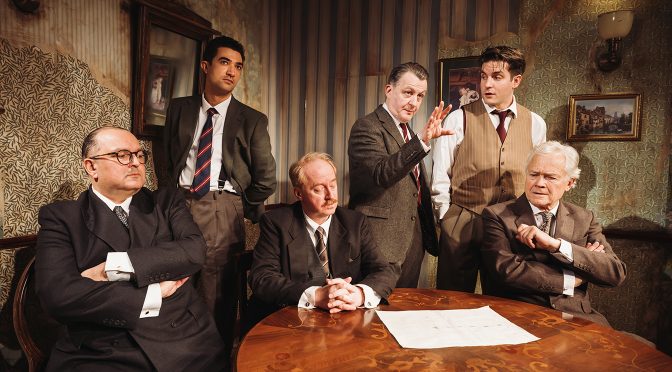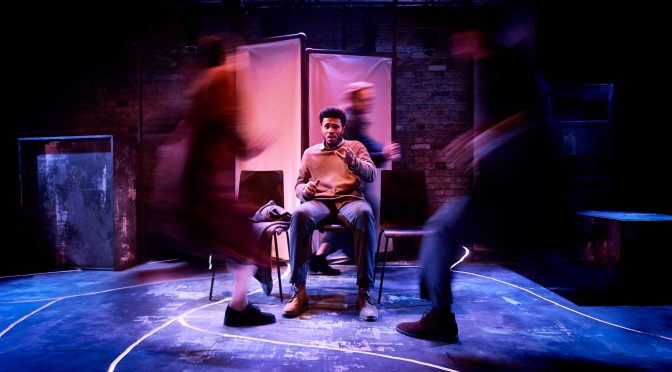Playwright Katherine Moar has chosen a fascinating piece of history for an impressive debut. Farm Hall was the real-life location for a group of German physicists held by the Allies at the end of World War II. Great names with Nobel prizes galore were, politely, imprisoned in the country and their recorded conversations make for interesting theatre.
Carefully written and performed and expertly directed, Farm Hall is a traditional affair – there’s no avoiding that it’s a collection of (clever) talking heads. But Moar has done her research and her quest for nuance proves an invaluable asset. There’s also a reminder of Covid lockdown as these brilliant men are so bored! Bickering against a background of having been enemies in Germany, they are far from united in defeat.
Including the group’s amateur dramatics and sing-songs is a smart touch. But what really impresses is how director Stephen Unwin allows the structure of the scenes to flourish. After a surprisingly light start, personal dramas are balanced by abstract questions, and flipping between the two provides dynamism. Moral dilemmas don’t come bigger than those these men faced. Yet the play’s best bits emerge from individual circumstances.
Bringing to the stage six big characters leads to understandable shortcuts from Moar, but the performances smooth over any clunky exposition. I did wonder if the “impenetrable” Werner Heisenberg might be the star of the script? The theoretical physicist has appealed to dramatists before and Alan Cox’s performance in the role is certainly commanding.

The question of Heisenberg’s role in Germany’s failure to make an atom bomb looms over the play – it isn’t given enough time to become a focus. But the piece benefits as a whole. Heisenberg’s students, Erich Bagge and Carl Friedrich von Weizsäcker, prove powerful figures. The latter is an odd dandy, made intriguing by Daniel Boyd’s layered performance. Archie Backhouse’s Bagge brings the most overt emotion to the play – excellent work.
There’s a further trio to enjoy. Kurt Diebner is a less apologetic Nazi and full-on oddball that Julius D’Silva manages to make us warm too – how’s that for an achievement? His opponent, Max von Laue, is given great dignity by David Yelland, while Forbes Masson’s placatory Otto Hahn gives a similarly detailed performance. Placing the biggest weight of guilt on this seemingly sweet man is a highlight.
Moar deserves credit for opening up so many themes. Of course, the men discuss their war, but general ideas about cooperation and competition are neatly pulled out alongside plenty of politics. Farm Hall is sure to prompt after-show discussions. And who doesn’t like that? But stripping back the men behind the science is the key to making the play engaging. And it’s the sextet of performers who guarantee the show’s success.
Until 8 April 2022
Photo by Alex Brenner



